Album review: Debussy & Strauss, Melbourne Symphony Orchestra’s five-star triumph
Soprano Siobhan Stagg soars over and around the Melbourne Symphony Orchestra’s superb playing on ‘Debussy & Strauss’. Conducted by Jaime Martin, this is music-making to savour.
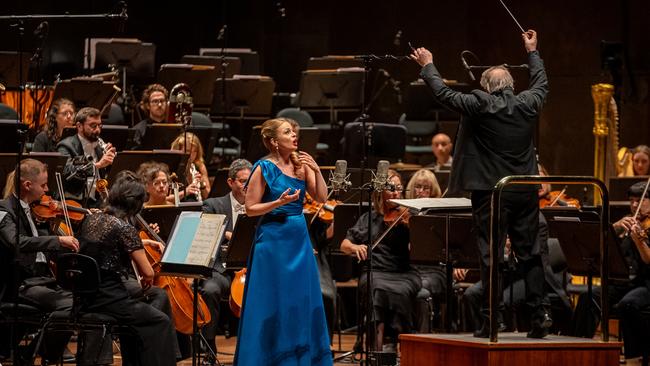
Album reviews for week of June 21 2024:
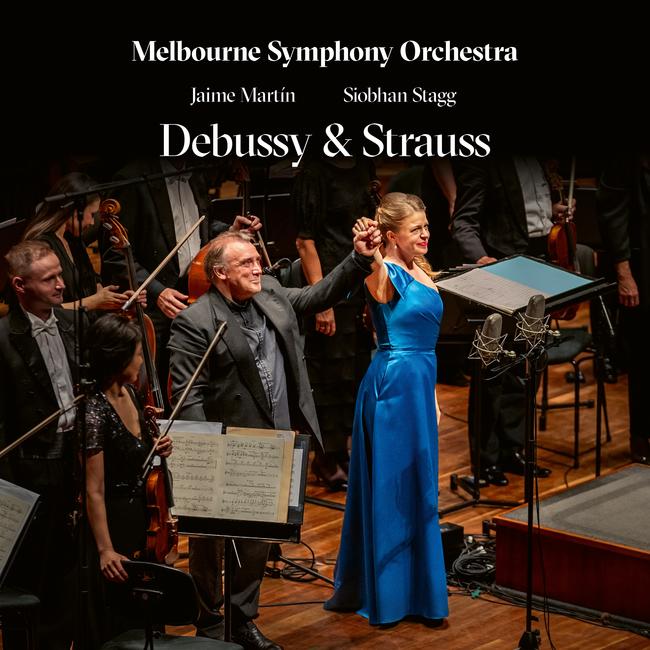
CLASSICAL
Debussy & Strauss
Melbourne Symphony Orchestra, Jaime Martin and Siobhan Stagg
Melbourne Symphony Orchestra
This striking release launches an impressive new partnership between the Melbourne Symphony Orchestra and the London Symphony Orchestra. Established in 2022, the partnership aims to create a cross-cultural collaboration between the two and, over time, exchanges of players, personnel, ideas and repertoire. And what a launch this is: here, the MSO and chief conductor Jaime Martin shine in their finest playing in recent memory. For all the glorious orchestral work on this handsome release, the star is soprano Siobhan Stagg, Mildura-born, trained at the University of Melbourne and in London, darling of the international stage and the MSO’s artist in residence last year. In 2018, we marvelled at her Melisande in Victorian Opera’s exquisite production of Debussy’s opera. Here, her performances in the Four Last Songs by Richard Strauss and Brett Dean’s lapidary orchestrations of Debussy’s Ariettes Oublies are more subtle and multi-hued. She soars and slides over and around the MSO’s superb playing, evoking memories of Elizabeth Schwarzkopf in her heyday. Both works were recorded in Hamer Hall early last year — not a venue that is uniformly kind to music like this, I have found in my recent years living in Melbourne.
Yet to its great credit, the recording team has created audio alchemy that shows off the MSO at its best. Every brass chord is evenly spaced like organ registration, woodwinds flutter like birds, and every string chord sounds in perfect unison. Though both works appear to have been recorded in concerts before audiences, there are no extraneous noises and the playing is fresh and immaculate. In the Debussy pieces, Brett Dean stands as a master orchestrator: he knows the orchestra from the inside out, as a viola virtuoso and conductor. His orchestration of the six pieces of Debussy’s piano suite of 1886 suggests the MSO should invite him to create more, perhaps even completing scores Debussy himself left incomplete. This is music-making to savour, best approached at night, in low lighting with a glass of one’s favourite potion on hand to beckon sleep. While it is good to see every player listed, it is a pity that the liner book doesn’t identify the splendid contributions of some individual soloists, especially violin, cor anglais and French horn. One further quibble: at 10 tracks totalling barely 40 minutes in duration, did one piece go missing? Could the MSO not find another 20 minutes from its expansive repertoire of French music? Regardless, this wonderful release is already high on my list as album of the year.
Vincent Plush
Main picture: Samantha Meuleman

AFRO-POP
Passeport
Lass
Chapter Two
The artist simply known as Lass has stamped himself as a major new Senegalese talent, one who looks set to follow in the footsteps of superstar compatriots like Youssou N’Dour and Baaba Maal. The follow-up to a 2022 debut album that heralded a new ambassador of afro-pop, Passeport virtually ensures the singer admission to major international festivals such as the UK’s WOMAD and its Australian offshoot WOMADelaide. Lass’s ultra-soulful and soaring singing is scintillating throughout, from the set’s shortest song — the opening rumba-esque Massamba — to its longest, the closing six-minute jazz-infused workout Samba, which allows the session’s brilliant French brass band Cotonete to stretch out. His vocal sustain, as accented on the slower early verses of Mina and Sory – the latter featuring a classy jazz break from guest Cuban pianist Roberto Fonseca – and in the bridge section of the Brazilian influenced Xale, even evokes Mali’s Salif Keita, the so-called “golden voice of Africa”. Lass is less impressive in a danceclub accented title track, in which a traditional West African talking drum converses with electronic beats and digital keyboards.
Tony Hillier

INDIE ROCK
The Big Decider
The Zutons
Icepop
For those on the scene in the 2000s, The Zutons offered equal doses of frenetic indie rock and sax-wielding groove while carving a considerable niche in the process. The dream didn’t last, however, and it hit the whatever-happened-to? pile by 2009. For its first album in 16 years, the band didn’t do things by halves: It headed to Abbey Road to record, with the legendary Nile Rodgers behind the boards. The latter’s influence is all over Side A, with the strutting Creeping On the Dancefloor and boppy Water taking the trio express to Studio 54. The ballads and mid-tempo tracks don’t fare as well, not least of all because they transition like a school disco DJ cueing up the slow song. There’s a charm to the title track, though, which borrows heavily from Fleetwood Mac’s Second Hand News while adding in synth twirls and a bright poppy hook as proverbial ribbons on top. Whether you’re a day-one fan or only just discovered Valerie is a cover, welcoming back this gem of a band is an easy decision.
David James Young
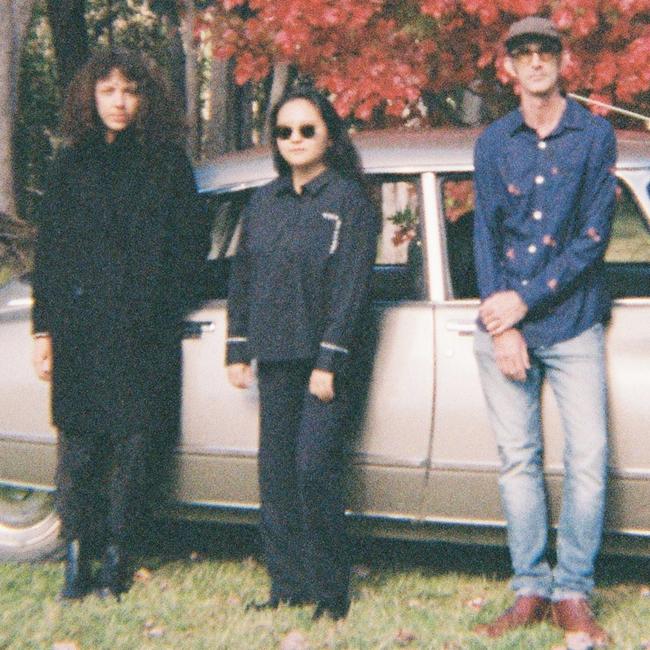
JAZZ
Anatomical Heart
Erik Griswold, Helen Svoboda + Chloe Kim
Earshift Music
I have reservations about the music of free improvisers, simply because, in the name of freedom, they often do away with core elements in jazz that are essential to the music’s appeal. I may be misguided, but whenever I hear a jazz group, I am listening for the familiar as much as I’m listening for the original. The music on Anatomical Heart featuring Erik Griswold (prepared piano), Helen Svoboda (contrabass) and Chloe Kim (drums & percussion) is not far removed from the conventional piano, bass & drums set-up, which has long underpinned jazz. This conceptual framework helped me find a way into the music, which I concede has moments of brilliance, although I find Griswold’s playing generally indifferent. The three musicians spent a week in April 2023 in secluded surroundings on the Australian east coast, rehearsing and recording. The music therefore reflects a certain amount of preparation, which arguably sacrifices the spontaneity essential to free jazz. The eight tracks are interesting, but I cannot report that I found the music particularly inspiring.
Eric Myers
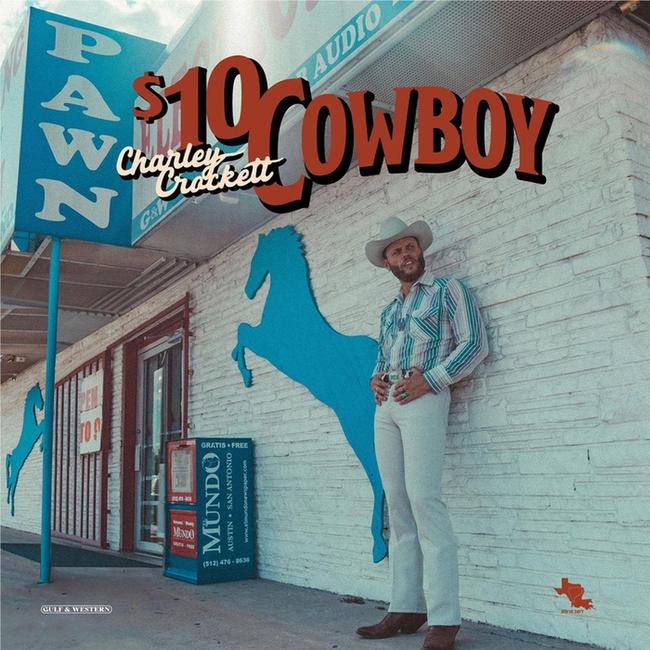
COUNTRY
$10 Cowboy
Charley Crockett
Son of Davy/Thirty Tigers
Texas-born Charley Crockett is the kind of singer-songwriter who would be out singing regardless of whether anybody was listening – and if you need proof, he was doing so for nearly 15 years before a wider audience started paying attention. From street corners to the famed Ryman Auditorium is a rags-to-riches story for the ages, and both Crockett’s output and showmanship have made him one of country music’s most wanted men. $10 Cowboy arrives 16 months after his last record — an eternity by his prolific standards, having now issued 13 albums since his 2015 debut. It’s a portrayal of the artist travelling still amid soul searching and looking down the line at his story so far. Alongside his distinctive drawl is a rustic and soulful blend of pedal steel, sizzling horns and shuffling grooves. They accentuate tales of misfortune and lost evenings (Hard Luck & Circumstances, Good At Losing), but also stories of a defiant underdog (Ain’t Done Losing Yet). It comes together in a manner that, while closely paralleled to his other efforts, still maintains a freshness and a charm worth every cent.
David James Young
Album reviews for week of June 14 2024:
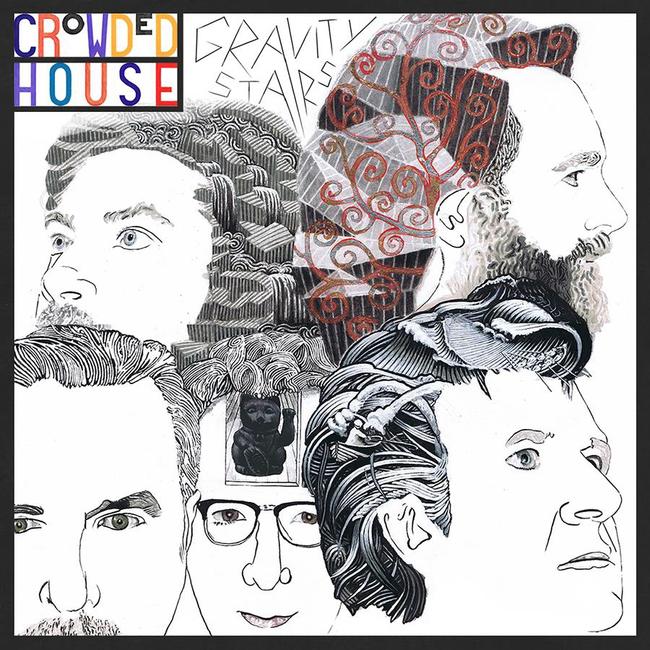
POP/ROCK
Gravity Stairs
Crowded House
BMG
When Neil Finn’s then new, post-Split Enz band was signed direct to Capitol Records back in 1985, the first order of business for the storied US label was a rechristening. Thus the Mullanes, a name that meant nothing beyond Finn’s immediate family, became Crowded House, a nod to the cramped living conditions its members endured after moving to Los Angeles to record their debut album. Paradoxically, all five current band members – Finn, his sons Liam (guitar/keys) and Elroy (drums/keys), co-founding bassist Nick Seymour and the band’s original producer, now lead keys player, Mitchell Froom – live in separate countries. You wouldn’t know it from listening to Gravity Stairs, only the eighth Crowded House album in an almost 40-year, stop-start career. While it’s true the band rehearsed the songs together prior to recording, much of the process took place remotely. Yet there’s a cohesion and continuity to these 11 tracks that suggests the quintet occupied the same room for the duration.
It’s this line-up’s second album after 2021’s Dreamers Are Waiting. The difference is this time they’ve gone with an outside co-producer, Australian Steven Schram (Paul Kelly, Vika & Linda). A devotee of spatial sound technology, Schram imparts a lushness that layers the familial harmonies of Crowded House atop bedrock guitars and Froom’s orchestral keys, with Seymour’s bass riding shotgun on the vocal melodies. The approach is George Martin-esque, and Gravity Stairs accordingly plays up to the Beatles comparisons that have stalked Finn all his career; even its cover art is a blatant homage to the Fab Four’s Revolver. As for that elliptical title, the phrase pops up in opening track Magic Piano, in which Finn describes climbing a heavy stone staircase that symbolises his struggle to get on top of the creative process: “Words matter but they get in the way / When you got some stories to tell / Let the melody reign, oh yeah … ” It also sums up his songwriting metier, wherein the sound of words is as important as their meaning, and of equal weight to the music. Though Finn has penned most of the material, there are collaborations with both sons (Liam also contributes a song) and another with brother Tim, who sings harmony on the album’s centrepiece, Some Greater Plan. The family circle is completed by their late father, Richard, whose WWII service diary inspired the song’s touching tale of a brief wartime romance. With its bouzouki-led folky ambience, courtesy of Greek acoustic quartet Maistrato, it’s an outlier in more ways than one.
Phil Stafford
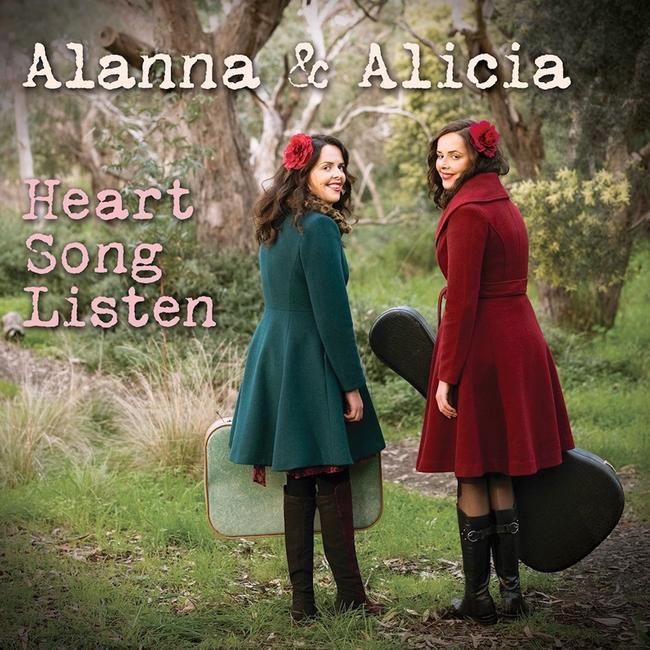
ROOTS
Heart Song Listen
Alanna & Alicia
Independent
Taut verses and tight vocal harmonies trip off the tongues of these twin sisters as they glide across genre boundaries with predominantly self-composed songs and a well-chosen crew of instrumentalists. Blending folk, jazz and other styles on their fifth album, Alanna & Alicia exude characteristic warmth and wit – even on an ironic centrepiece hatched during Victoria’s draconian Covid lockdown: “Swap power suit for tracksuit, go to your room / Until you learn how to behave, you’ll be enslaved by Zoom”. More serious songs alluding to suffering, such as Borrowed Time, Sing For Tuvalu and Secret Pocket, are counterbalanced by upbeat pieces relating to New Orleans, dancing and Dixie swing, and a droll calypso-esque number that debates the pros and cons of dating a teetotaller – “The boy don’t drink / His breath don’t stink” versus “Nobody likes a boozer, nobody likes a lush / Nobody likes a beer belly or the bilious telltale flush”. Harmony-wise, the Egan twins hit the sweet spot with Andrews Sisters precision on a vintage blues curtain-closer, Women Be Wise.
Tony Hillier
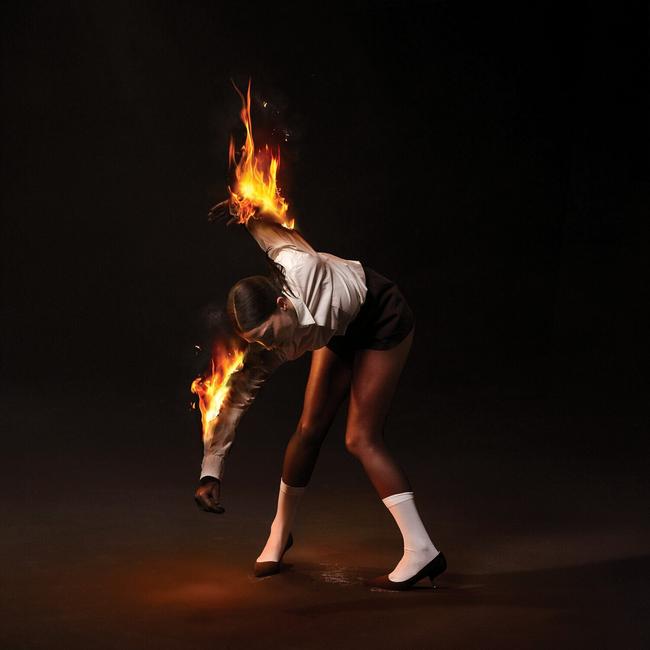
ART ROCK
All Born Screaming
St. Vincent
Total Pleasure/Virgin
Annie Clark has always had agency over St. Vincent – after all, she is her. What’s different for her seventh solo album, however, are the little things: this is Clark’s first self-produced album, as well as her first self-released via her own imprint. She’s returned with arguably her most eclectic collection to date – no mean feat for one of music’s great contemporary eccentrics, often hopping from snarling guitars to swivelling funk in a single bound. Standout track Broken Man boils and bubbles with frenetic tension before its distorted, downtuned riffs promptly explode – all while Dave Grohl pummels drums in the background. Elsewhere, Big Time Nothing pairs soulful choir vocals with a zigzagging bass synth, while the dub-inspired So Many Planets feels like 10CC’s Dreadlock Holiday slowly melting into a feverish nightmare. Just when you think you have Clark’s quirks all mapped out, she finds a new route entirely. At this point in her career, you’re more or less following St. Vincent out of pure fascination as to where the hell we’re headed next.
David James Young
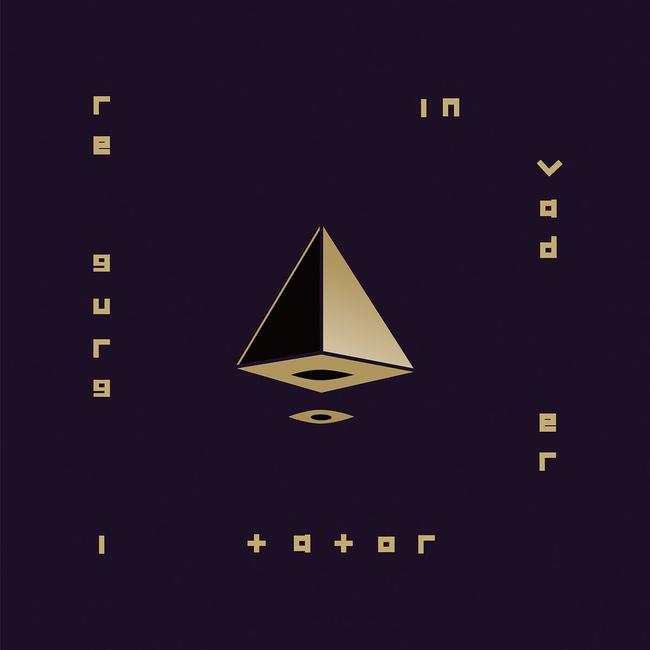
ALTERNATIVE ROCK/PUNK
Invader
Regurgitator
ABC Music / Valve Records
In case you didn’t know, Regurgitator are really political! Like, lefty-punk political. They want to be with the “wrong people” and they say “f..k the right” like they really mean it. Also, if they don’t like you, they’ll accuse you of having a small penis, so tread carefully, boomers! Musically speaking, they have saxophones in one of their new songs; it’s like the ’80s all over again – I bet you’ve never heard a rock band do that before! They’re also the masters of irony: they have a song called This is Not a Pop Song, and they’re right – it’s a bad pop song! Also, they have a spoken word interlude called The Bastard Poem That Nobody Wanted – which … it is! And they spell songs the wrong way on purpose (That’s Not Nermal) because of “punk rock”! Aside from all these quirks, they do write some good music. Think of it this way: if Queens of the Stone Age, Iggy Pop and Beck tripped acid in a suburban Aussie garage and then tried to write some three-minute hits, a lot of the results would be crap … but there would be the occasional dose of magic to save the arvo from being a complete waste of time. And so it is with the band’s 11th album: mostly forgettable, but for a few bright sparks.
Alasdair Belling
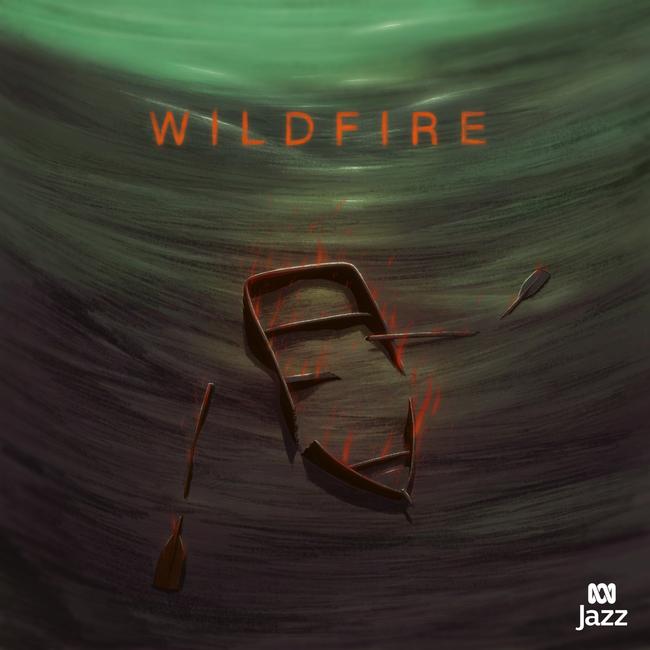
JAZZ
Wildfire
Wilbur Whitta
ABC Jazz
Wilbur Whitta has emerged lately through performances by the legendary ensemble Ten Part Invention, where he has succeeded brilliantly in the group’s demanding piano chair. From Canberra, and somewhat unknown in Australia, he is perhaps better known in the UK where he studied at the Royal Academy of Music and in 2019 received a Dankworth prize for jazz composition. His extraordinary talent is confirmed here with the quartet Wildfire performing nine of his compositions, played with absolute authority and conviction. Whitta is joined by Tom Avgenicos (trumpet), Jack Stoneham (alto saxophone) and Alex Inman-Hislop (drums). Unusually, Wildfire has no bassist; while this is not debilitating, I believe the music sounds much warmer when, on three tracks, Whitta plays keyboard bass on synthesiser. In a refreshing innovation, Stoneham employs a very broad vibrato in several places; another unusual choice for a saxophonist of his generation. This album continues the fascination among relatively young Australian musicians with free jazz, but the free improvisations here are well balanced by extremely interesting composed material.
Eric Myers

To join the conversation, please log in. Don't have an account? Register
Join the conversation, you are commenting as Logout